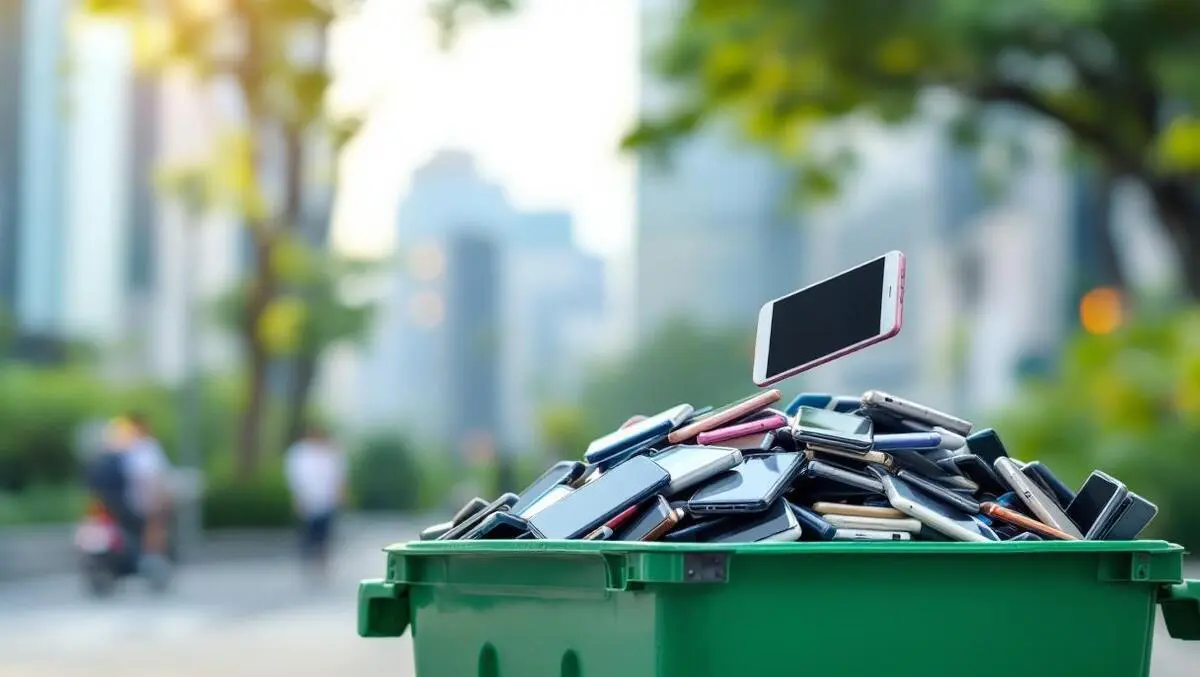
Singapore urged to embrace circular tech to slash e-waste
New survey data suggests that 2.9 million unused smartphones are currently sitting idle in homes across Singapore, highlighting a growing electronic waste challenge and the need for greater circularity within the technology sector.
The findings are detailed in a whitepaper by Device-as-a-Service platform Cinch, titled Rethinking E-Waste: How Singapore's Consumer Tech Ecosystem is Building a Blueprint for a Circular Economy in Southeast Asia. The document sheds light on purchasing patterns, device replacement cycles, and barriers to responsible disposal, offering new perspectives on the habits shaping Singapore's e-waste landscape.
Frequent cycles, forgotten phones
According to the report, Singaporeans replace their smartphones on average every 2.7 years – considerably faster than the global average of 3.5 years. Despite this quick turnover, most of these older devices are neither recycled nor traded in, but left in drawers or storage, contributing to an accumulating inventory of electronic waste.
Several obstacles were highlighted by consumers surveyed. The report identifies primary concerns as data privacy and a lack of easy, convenient recycling or return options. While technology adoption in Singapore remains high and infrastructure is robust, these unused devices represent a significant, often overlooked fraction of the country's mounting waste burden.
Nevertheless, the data points to a willingness to change, with 90% of Singaporeans open to reusing, recycling, or returning their old devices if the process could be made both simpler and more secure.
Circular strategies
The report places particular emphasis on the concept of a circular technology economy as the most effective way to mitigate waste and lessen environmental impact. This approach focuses on maximising the usable lifecycle of each device through reuse, refurbishment, redeployment, and – when necessary – recycling.
Such outcomes, the authors argue, will require consistent, broad-based collaboration among policymakers, businesses, and the public. The necessity for partnership is underlined in the report's assessment of current interventions and proposed solutions.
"No single company can solve e-waste alone. What's needed is a national framework that rewards sustainable behaviour and embeds circularity into the tech ecosystem," said Mahir Hamid, CEO of Cinch.
Cinch's Device-as-a-Service model exemplifies one avenue where circularity is being put into practice. This approach allows consumers and organisations flexible access to devices, rather than outright ownership, and facilitates the controlled return, refurbishment, or recycling of equipment. Cinch is working in partnership with ALBA, CompAsia, and other organisations to develop these systems and align with regulatory efforts such as Singapore's Green Plan 2030 and the National Environment Agency's Producer Responsibility Scheme.
Reducing resource use and climate impact
The whitepaper also quantifies the environmental potential of adopting circular models at a national scale. Projections in the report suggest Singapore's e-waste output could be halved and technology sector emissions reduced by as much as 40% through widespread adoption of device reuse and refurbishment schemes.
Each refurbished smartphone, according to the report, helps avoid 25 kg of CO2 emissions, 77 kg of raw material extraction, and 56 g of electronic waste. Additionally, for consumers, subscription-based models could reduce upfront device costs by as much as 96% compared to purchasing new devices outright, addressing economic as well as environmental considerations.
Shared responsibility
The report acknowledges existing government efforts to regulate e-waste and expand collection infrastructure but stresses that sustained progress relies on partnership through the technology sector and an informed consumer base. Business models that emphasise longevity, repair and responsible return are described as having a pivotal role in Singapore's transition toward a sustainable, circular model of technology consumption.
"Circularity isn't an add-on to business. It is becoming the core of how tech consumption needs to evolve," Hamid concluded. "We're proud to be part of the broader national effort to make Singapore a leader in sustainable innovation."


